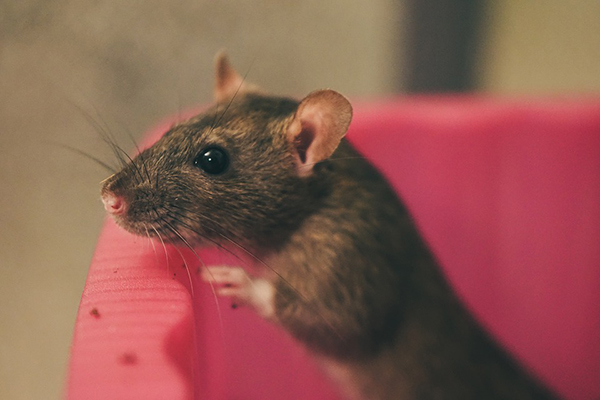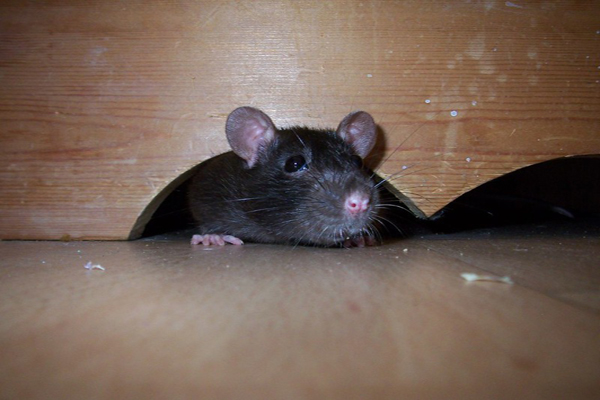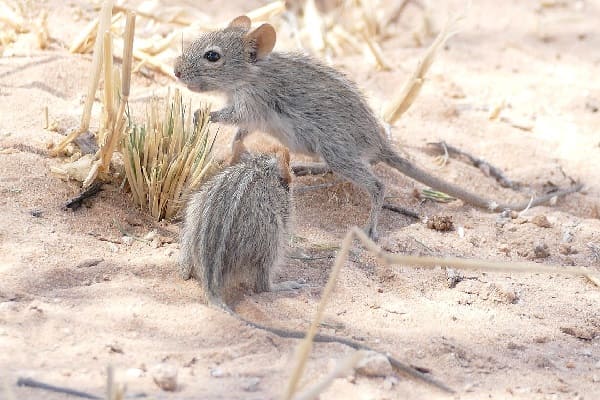
Rats are fascinating creatures that have been around for thousands of years. They come in many shapes and sizes and can be found in different habitats, including the wild, or in the city, and in people’s homes as pet rats. As rat owners know, these little critters can steal your heart with their adorable faces and quirky personalities. But how long can you expect your furry friend to stick around? Well, it all depends on a few factors, such as the type of rat and how well you take care of them.
On average, pet rats live for about 2-3 years, which is a relatively short lifespan compared to other pets. But don’t let that discourage you from adopting a rat! They may have a shorter life, but they make up for it with their spunky attitudes and mischievous behavior. Plus, you can always cherish the memories of your little buddy even after they’ve crossed the rainbow bridge.
Understanding the lifespan of rats is important for those who have a pet rat and those who study wild rats. In this article, we will explore how long do rats live for, their lifespan from young rats to older rats, and how it varies between wild and pet rats. So, whether you are a rat enthusiast or just curious about these rodents, this article is for you.

Average Rat Life Cycle
The lifespan of rats or mice is an interesting topic to explore, as it varies depending on different factors. Understanding the average rat life cycle is important for those who have pet rats, as well as those who are studying wild rats. This post will take a closer look at the factors that influence how long rats live, including genetics, environment, and diet. Additionally, we will examine the average lifespan of pet rats and wild rats, and how they compare to each other. So, whether you are a rat owner or just curious about these fascinating rodents, keep reading to learn more about rat lifespan.

Newborns
Newborn rats are born hairless, blind, and deaf. They are completely dependent on their mother for survival, as she provides them with warmth, milk, and protection. In the wild, newborn rats face a high mortality rate due to predation, disease, and other environmental factors. However, in captivity, newborn rats have a better chance of survival as they are protected from predators and have access to a controlled environment. The lifespan of newborn rats can vary depending on their health and genetic makeup, but they generally have a short life expectancy.

Juvenile Rats
Juvenile rats are the stage after newborns and are typically weaned by their mother at around three weeks of age. During this stage, they start to explore their surroundings and develop their physical and social abilities. In captivity, juvenile rats have a better chance of survival as they are protected from predators and have access to quality food and healthcare. The lifespan of juvenile rats can vary depending on their living conditions and genetic makeup, but they generally have a longer life expectancy than newborn rats.

Adults
Adult rats are fully mature and capable of reproduction. In captivity, adult rats have a longer lifespan than their wild counterparts, as they have access to quality food, healthcare, and a controlled environment. The lifespan of adult rats can vary depending on their living conditions, genetic makeup, and health status, but they generally have a longer life expectancy than juvenile and newborn rats. It is important to provide adult rats with proper care and nutrition to ensure they live a long and healthy life.
Average lifespan of Wild rats vs. Domesticated rats
Wild rats and domesticated pet rats have different lifespans due to the environment they live in, diet, and healthcare. Wild rats have a shorter lifespan compared to pet rats due to their exposure to various environmental factors and predators. In the wild, rats may be exposed to harsh weather conditions, disease, and predators, which can reduce their lifespan. The average lifespan of wild rats is around a year or less, although some wild rats may live longer depending on the circumstances.
On the other hand, domesticated pet rats have a longer lifespan than their wild counterparts due to the controlled environment they live in, access to quality food, and veterinary care. Pet rats can live up to 2-3 years on average, although some may live up to 4 years or more. The lifespan of pet rats can be influenced by various factors such as diet, living conditions, and genetics. It is important to provide pet rats with proper nutrition, healthcare, and a stimulating environment to ensure they live a long and healthy life.
The lifespan of wild rats and domesticated pet rats differs due to the environment they live in and the care they receive. While wild rats have a shorter lifespan due to exposure to predators and other environmental factors, pet rats can grow old or live longer lives with proper care and attention. Understanding the lifespan of rats can help us provide the best possible care for our pet rats and appreciate the maximum importance of these fascinating rodents in the wild.

Factors that affect a rat’s lifespan
The lifespan of a rat can be influenced by various factors such as genetics, diet, environmental conditions, and healthcare. The species of the rat can also impact their lifespan. For instance, hairless rats tend to have a shorter lifespan compared to other rat species. This is because hairless rats are more susceptible to infections, and they require more care and attention to maintain their health.
Gender is another factor that can impact a rat’s lifespan. Female rats tend to live longer than males due to their genetic makeup. Male rats have a higher susceptibility to tumors and respiratory infections, which can affect their lifespan. In addition, female rats are more active and engage in more physical activity than male rats, which can help them maintain their health and longevity.
Other factors that can impact a rat’s lifespan include diet and environmental conditions. A well-balanced and nutritious diet is essential for rats to maintain their health and longevity. Rats require a diet that is high in protein, fiber, and low in fat to ensure they remain healthy. In addition, the environment that rats live in can also impact their lifespan. Rats require a clean, stimulating environment that provides them with plenty of space and opportunities for physical activity and socialization.
How to increase the lifespan of your pet rat
There are several things you can do to increase the lifespan of your pet rat and ensure they live a happy and healthy life. Providing a balanced and nutritious diet is crucial for a rat’s longevity. Rats need a diet that includes protein, carbohydrates, fats, vitamins, and minerals, and it’s important to avoid feeding them too many sugary or fatty foods. Additionally, make sure your rat has access to clean and fresh water at all times.
Another important factor in a rat’s lifespan is their environment. Rats require a clean and safe living space with plenty of room to move around and exercise. Providing environmental enrichment, such as toys and hiding places, can also improve their quality of life and increase their lifespan. Hairless rats require special attention to their environment, as they lack protective fur and are more susceptible to temperature changes and skin problems.
Regular veterinary check-ups are also crucial for a rat’s lifespan. Many health problems in rats can be treated successfully if detected early. Additionally, providing your rat with prompt veterinary care can help prevent health problems from becoming more serious. Finally, providing your rat with socialization and companionship can help reduce stress and improve their quality of life. Fancy rats, in particular, are social animals and benefit from living in pairs or groups.
Need Help With Wildlife On Your Property?
If you’re having issues with wildlife on your property, such as raccoons, squirrels, or rats, AAAC Wildlife Removal Services can help. Their team of experts can safely and effectively remove wildlife from your property and implement preventative measures to keep them from returning.
If you’re a rat owner and you’re concerned about domestic rats on your property, AAAC Wildlife Removal Services can assist with the humane removal of these animals. This is particularly important if you have baby rats or a large population of rats that can cause damage to your property or pose a health risk. With their expertise in wildlife removal and management, you can trust AAAC Wildlife Removal Services to provide effective solutions to your wildlife problems.
Final Thoughts
Rats are fascinating and intelligent animals that make wonderful pets. With proper care and management, you can help your pet rat live a happy and healthy life. Remember to provide your rat with a balanced diet, a clean and safe living environment, regular veterinary care, and socialization with other rats.
It’s also important to consider the different rat species and breeds, such as the hairless rat, female rat, and brown rat, and their specific needs. For instance, hairless rats require special attention to their environment due to their lack of protective fur, while female rats tend to live longer than males due to the protective effects of estrogen. And if you happen to come across a baby rat or wild rat on your property, consider contacting AAAC Wildlife Removal Services for safe and humane removal.
Overall, rats are delightful and rewarding pets that can bring joy to your life for many years to come. With proper care and attention, you can help ensure that your pet rat enjoys a long and healthy lifespan.







